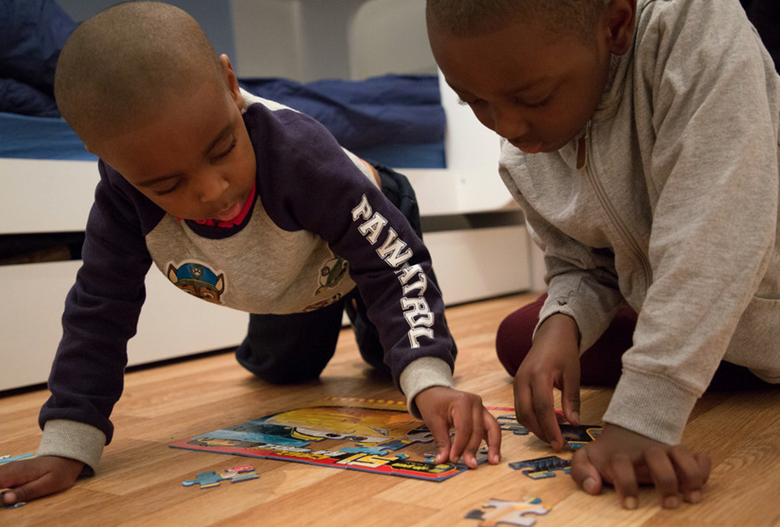Families face hardship due to 'nightmare' childcare system
Neil Puffett
Tuesday, January 23, 2018
Save the Children has called on government to simplify the childcare system, claiming that many families are being tipped into hardship because current arrangements are a "nightmare to navigate" and prevent mothers from working.

Despite recent reforms, such as the extended 30 hours free childcare entitlement for three- and four-year-olds, Save the Children said that parents are still facing "sky-high" childcare bills and struggling with a complicated system - with almost half of parents saying they have no idea or are confused about what support they should get.
A report by the charity found that many families are left unable to access the childcare they need to work, which can tip them into hardship.
It estimates there are around 89,000 mothers of children under the age of five who would like to get back into work but say that childcare is the main barrier to doing so. It calculates that a mother in an average family with young children could be losing between £3,400 and £11,400 a year because they can't get into work or aren't able to increase working hours. In total, it said the current childcare system is costing mothers in England £3.4m a day, or £1.2bn a year because it prevents them from working.
It is calling on government to address the "problems of cost, complexity and accessibility in the childcare system which are preventing parents from working". It wants ministers responsible for childcare to urgently set out plans to delivering a childcare system in England that is "easy to use and fits around families' lives".
Steven McIntosh, director of UK poverty policy, advocacy and campaigns at Save the Children, said: "Mothers describe a childcare system that feels stacked against them.
"They tell us it's a nightmare to navigate with barriers to work at every turn. The result is an astounding loss in earnings, hitting families already battling to make ends meet.
"The financial pressure and stress that creates at home is never good for parents or their children. It's time to make childcare work for families."
The report found that families of pre-school children face the biggest financial difficulties, suggesting that last year half of families with young children struggled to make ends meet - a higher proportion than families with older children.
It said the "lost earnings" can have a huge impact on children, with evidence showing that the stress and pressure affect not only children's quality of life but also their ability to learn at the most important time in their lives.
Purnima Tanuku, chief executive of National Day Nurseries Association, said: "Not only is the system extremely difficult for parents to navigate, there is little support for parents of very young children to incentivise both parents to work.
"This leads to a loss of income from one parent - usually the mother - resulting in financial struggles, especially after a period of maternity leave. Their child misses out on high-quality early education which gives them the best start in life and the economy loses the skills, knowledge and expertise of that parent who can no longer afford to work."
Neil Leitch, chief executive of the Pre-school Learning Alliance, said: "It is no surprise the high cost of childcare in the country is having a detrimental impact on maternal employment.
"For years now, the early years sector has been significantly underfunded, driving up costs for parents and leaving many unable to actually afford to return to work.
"Add to this the negative impact of underfunding on the availability of childcare places, and it's clear that the government must do much more to support the sector financially if it is to address the problems raised in this report."
A Department for Education spokesman said: "We have doubled the free childcare available to working parents of three- and four-year-olds to 30 hours a week, saving parents up to £5,000 a year per child, and over 200,000 children have already benefited from a 30 hours place since September.
"Our independent evaluation of the early rollout of 30 hours free childcare showed that nearly a quarter of mothers and one in 10 fathers increased their working hours as a result.
"We are tackling the barriers for parents to return to work by introducing shared parental leave, new rights to request flexible working and our £5m returner programmes that will make it easier for people to get on with their careers after taking time out for caring."




